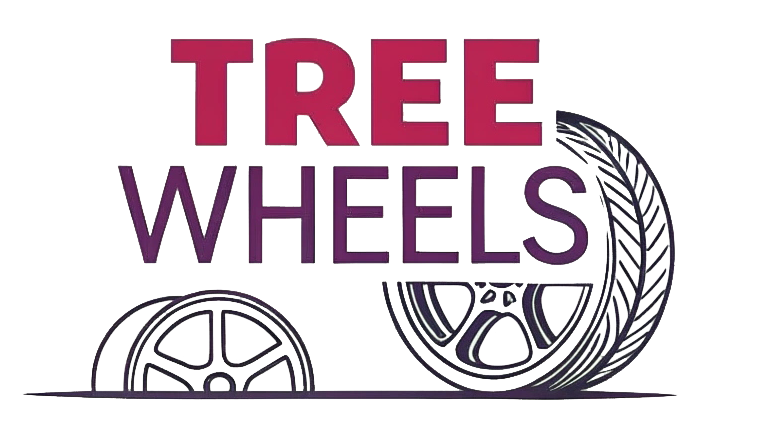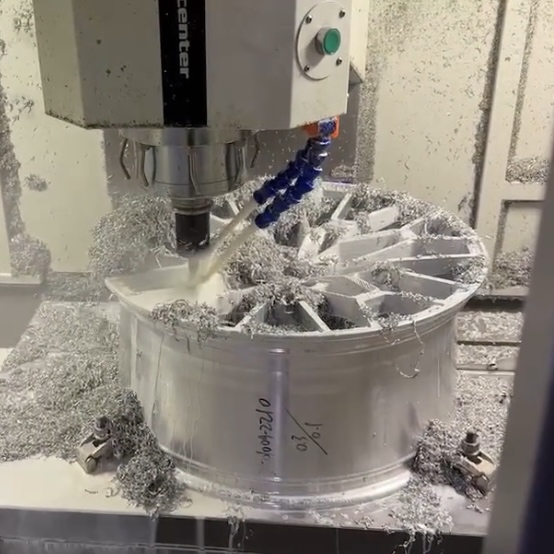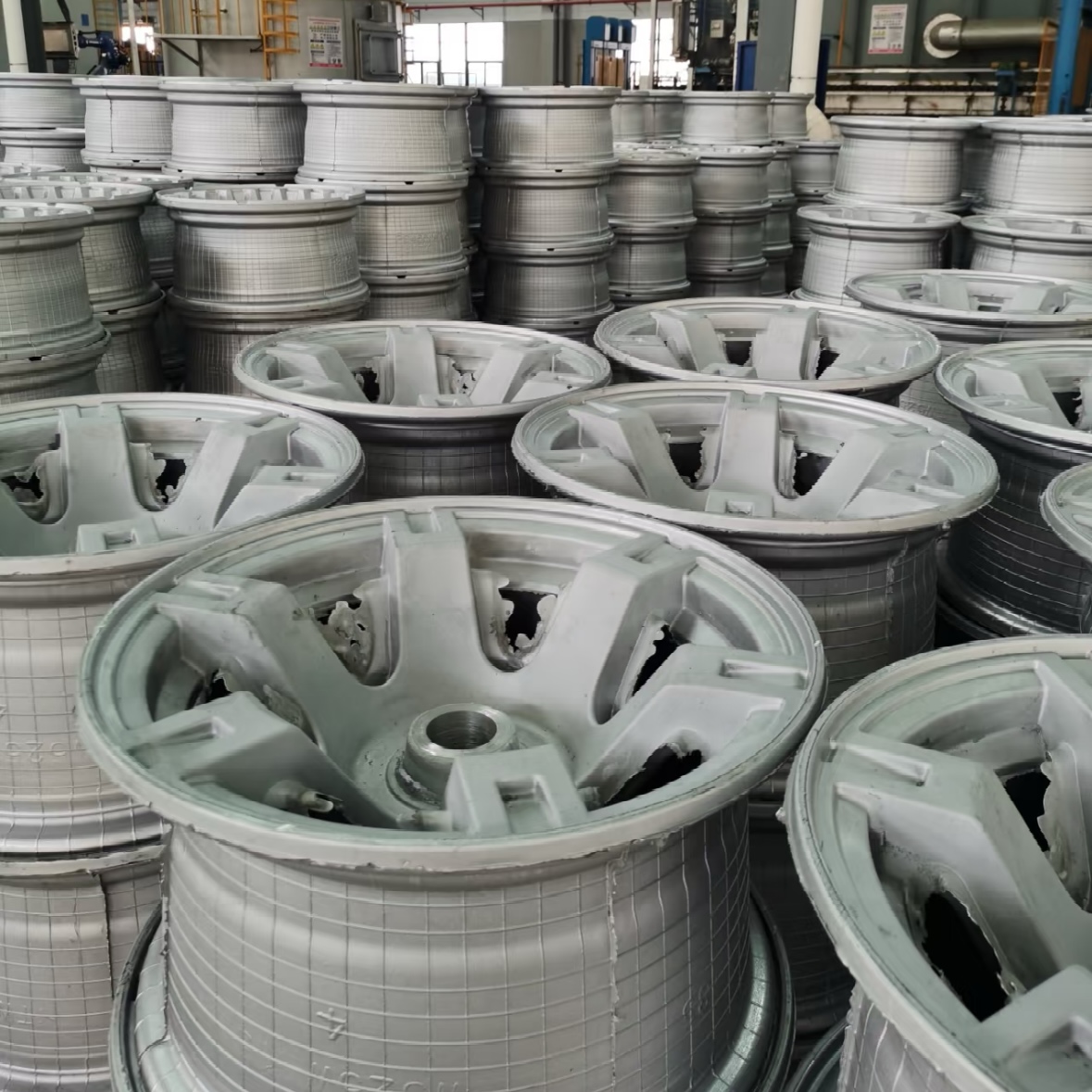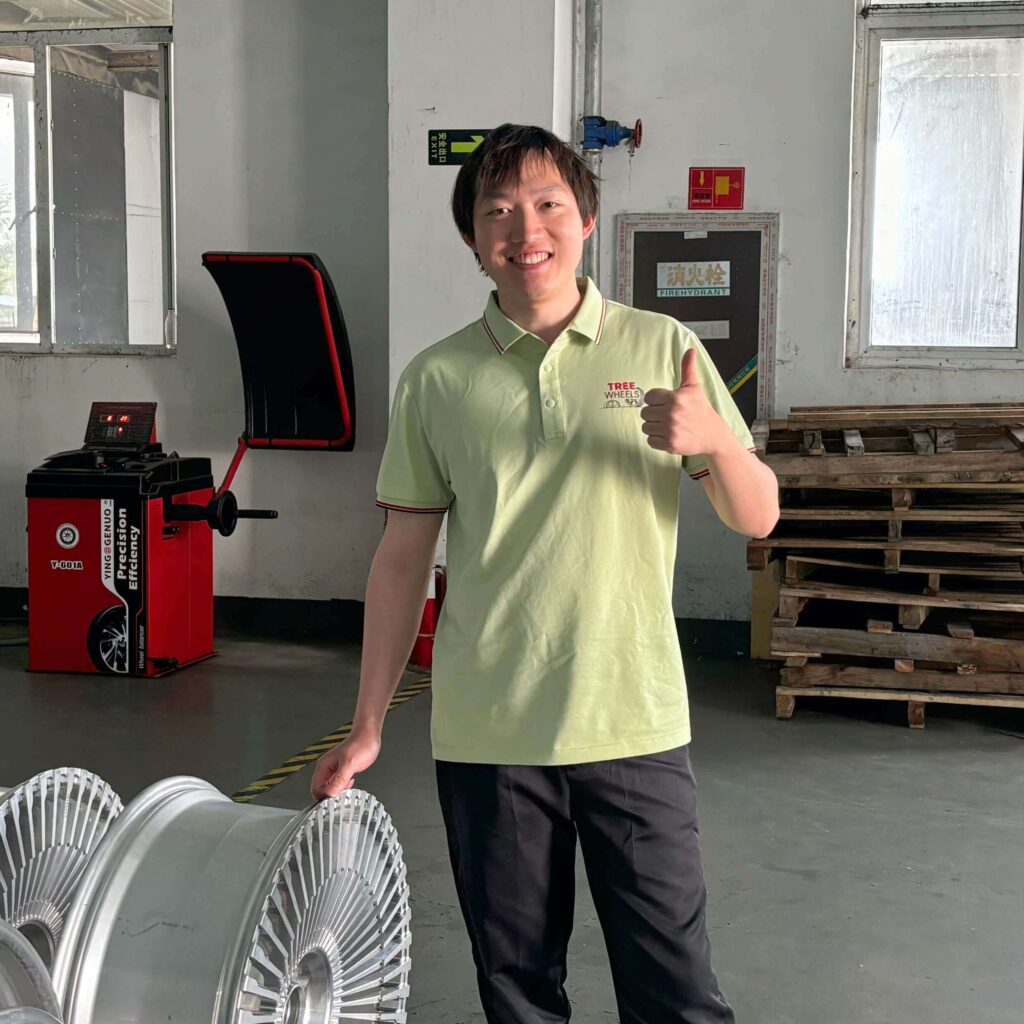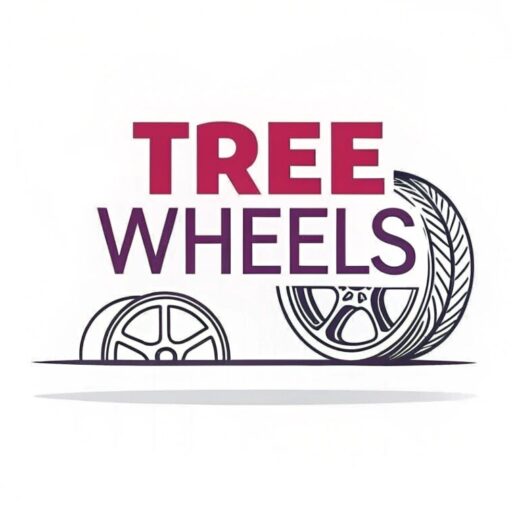Are you confused about wheel options for your vehicle? The difference between cast and forged wheels goes beyond price, affecting performance, durability, and suitability for your driving needs.
Forged wheels are manufactured by compressing aluminum alloy under extreme pressure to align the metal's grain structure, creating a stronger, lighter wheel compared to cast wheels which are made by pouring molten metal into a mold.
 comparison](https://treewheels.com/wp-content/uploads/2025/08/image-1-forged-vs-cast-wheels-comparison-drawin.png)
I've been in the wheel manufacturing industry for years, and this question comes up constantly from customers. The truth is, both manufacturing methods have their place in the market. Let me break down the key differences to help you understand which option might be right for your vehicle.
Which is better, forged or cast rims?
Trying to decide between forged and cast wheels? Many customers face this dilemma when upgrading their vehicle, unsure if the higher price of forged wheels justifies the investment.
Forged wheels are generally better in terms of performance and durability, as they're 20-30% lighter and significantly stronger than cast wheels. However, cast wheels provide excellent value for daily driving and are perfectly suitable for most standard vehicles.
 on [performance](https://bajabuiltwheels.com/blogs/news/the-power-of-forged-wheels-baja-built-race-wheels) car](https://treewheels.com/wp-content/uploads/2025/08/image-2-forged-wheels-on-performance-car-3d-ren.png)
The "better" choice really depends on your specific needs and budget. When analyzing this question with my customers, I always start by understanding their driving habits and vehicle type. For performance applications, forged wheels offer clear advantages. The manufacturing process creates a denser, more uniform metal structure that can handle greater stress while weighing less.
Let's examine the key differences in a more structured way:
Performance Comparison
| Feature | Cast Wheels | Forged Wheels |
|---|---|---|
| Weight | Heavier (typically by 20-30%) | Lighter, improving acceleration and handling |
| Strength | Good for normal driving | Superior strength-to-weight ratio ratio |
| Price | $50-200 per wheel | $170-680+ per wheel |
| Best for | Daily driving, economy cars | Performance vehicles, racing, luxury cars |
I often explain to customers that cast wheels are like solid rocks - sturdy but with a granular internal structure. Forged wheels, on the other hand, are more like bamboo with aligned fibers that provide greater resilience and flexibility under stress. This structural difference is why performance enthusiasts and luxury car manufacturers typically choose forged wheels despite the higher cost.
What are the disadvantages of forged wheels?
Considering forged wheels for your vehicle? While they offer impressive performance benefits, many customers are shocked by the price tag and wonder if they're really worth the investment.
The main disadvantages of forged wheels are their high cost (often 3-10 times more expensive than cast wheels), limited design options due to manufacturing constraints, and potential repair difficulties if damaged.
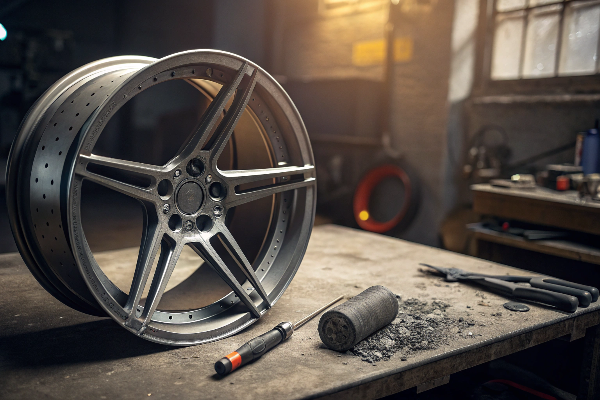
Beyond the obvious price concern, there are several practical considerations that I discuss with potential customers before they commit to forged wheels. In our experience at Tree Wheels, even though we specialize in high-quality forged products, we acknowledge they aren't the right choice for everyone.
The Full Picture of Forged Wheel Limitations
The manufacturing process for forged wheels requires specialized equipment and expertise, which directly impacts cost. Our monoblock forged wheels start at $170 for smaller sizes and can exceed $680 for larger three-piece designs. While this represents exceptional value compared to some competitors, it's still substantially more than cast alternatives.
Another limitation is design flexibility. The forging process naturally restricts some of the intricate designs that cast wheels can achieve through flowing molten metal into complex molds. While modern CNC machining has expanded design possibilities, certain aesthetic elements remain challenging to incorporate into forged wheels.
| Disadvantage | Impact | Consideration |
|---|---|---|
| High Cost | 3-10× price premium | Calculate ROI based on driving habits |
| Limited Design Range | Fewer intricate patterns | Focus on performance over aesthetics |
| Repair Challenges | Often require specialized service | Factor in potential replacement costs |
| Overkill for Many | Marginal benefits for normal driving | Match wheel type to actual usage needs |
In my years producing wheels, I've seen many customers purchase forged wheels when cast options would have served them perfectly well. It's important to match your wheel choice to your actual needs rather than simply choosing the most expensive option.
Can you feel a difference with forged wheels?
Notice your friend's new wheels and wondering if upgraded forged wheels are worth it? Many customers ask if they'll actually feel any difference after spending hundreds or thousands on premium wheels.
Yes, you can feel the difference with forged wheels, particularly during acceleration, braking, and cornering, as they reduce unsprung weight by 20-30%, improving responsiveness and ride quality while potentially reducing fuel consumption by 5-10% on performance vehicles.
 [performance](https://bajabuiltwheels.com/blogs/news/the-power-of-forged-wheels-baja-built-race-wheels) testing](https://treewheels.com/wp-content/uploads/2025/08/image-4-performance-testing-of-forged-wheels-te.png)
The performance difference is most noticeable in specific driving scenarios. From my experience manufacturing both types of wheels at Tree Wheels, I've collected extensive feedback from customers about their real-world experiences after switching to our forged products.
Measurable Performance Improvements
The reduced rotational mass of forged wheels delivers tangible benefits through what engineers call "the multiplier effect." For every pound of weight saved in the wheels, the effective benefit to vehicle dynamics is multiplied several times because wheels are unsprung weight that must be controlled by the suspension system.
Our internal testing with identical vehicles shows that forged wheels can improve:
| Performance Aspect | Typical Improvement | Why It Matters |
|---|---|---|
| 0-60 Acceleration | 0.1-0.3 seconds faster | Reduced rotational inertia |
| Braking Distance | 3-7 feet shorter from 60-0 mph | Less momentum to overcome |
| Cornering G-Force | 2-5% improvement | Better suspension response |
| Ride Comfort | Noticeably smoother | Better shock absorption |
| Fuel Economy | 1-3% improvement in real-world conditions | Reduced power requirements |
The most significant difference is felt in performance or luxury vehicles where the handling characteristics have been precisely engineered. On standard commuter vehicles, the difference exists but may be less pronounced relative to other factors like tire quality and suspension tuning.
I've had customers describe the change as making their car feel "more nimble" or "lighter on its feet." This is particularly true for drivers who enjoy spirited driving on winding roads or track days.
How to tell if wheels are forged or cast?
Found a great deal on premium wheels but unsure if they're actually forged? With counterfeit products flooding the market, many customers struggle to verify what they're really getting.
To identify forged wheels, check for machining marks and grain direction, look for consistent weight (forged wheels typically weigh 20-30% less than comparable cast wheels), examine for a uniform, dense finish, and verify authentic manufacturer markings on the inner barrel.
](https://treewheels.com/wp-content/uploads/2025/08/image-5-how-to-authenticate-forged-wheels-flat-.png)
As a manufacturer of premium forged wheels, I've unfortunately seen many counterfeit products claiming to be forged when they're actually cast. Here's my detailed guide based on years of industry experience to help you avoid being deceived.
Definitive Ways to Authenticate Forged Wheels
The manufacturing differences between cast and forged wheels create distinct physical characteristics that are difficult to fake. When examining wheels, pay attention to these telltale signs:
Visual Inspection Techniques
The grain structure of metal in forged wheels runs in consistent directions due to the compression process, while cast wheels have a more random crystalline structure. This difference is sometimes visible on raw or machined surfaces.
| Authentication Method | What to Look For | Why It Works |
|---|---|---|
| Weight Measurement | Compare exact weights to manufacturer specs | Forged wheels are consistently lighter |
| Sound Test | Tap wheel with metal object - forged wheels produce a clearer ring | Different metal density affects sound |
| Manufacturing Marks | Look for flow lines on forged wheels vs. parting lines on cast | Production method leaves distinct marks |
| Finish Quality | Examine for consistent density and fewer imperfections | Forging produces more uniform metal |
| Serial Numbers | Verify authentic serial numbers with manufacturer | Premium forged wheels are tracked by makers |
At Tree Wheels, we incorporate several authentication features into our products, including precision-etched serial numbers and specific internal markings that help identify our wheels as genuine. We recommend customers always purchase from authorized dealers and contact manufacturers directly if they have concerns about authenticity.
A common misconception is that all lightweight wheels are forged. In reality, modern flow-forming (a hybrid process) can create cast wheels that approach forged wheel weight while maintaining a lower price point.
Conclusion
The choice between forged and cast wheels depends on your specific needs, vehicle type, and budget. Forged wheels offer superior strength and performance but at a higher price point.
Whether you choose our premium forged wheels or quality cast options, Tree Wheels provides trustworthy guidance and authentic products for every automotive application.
